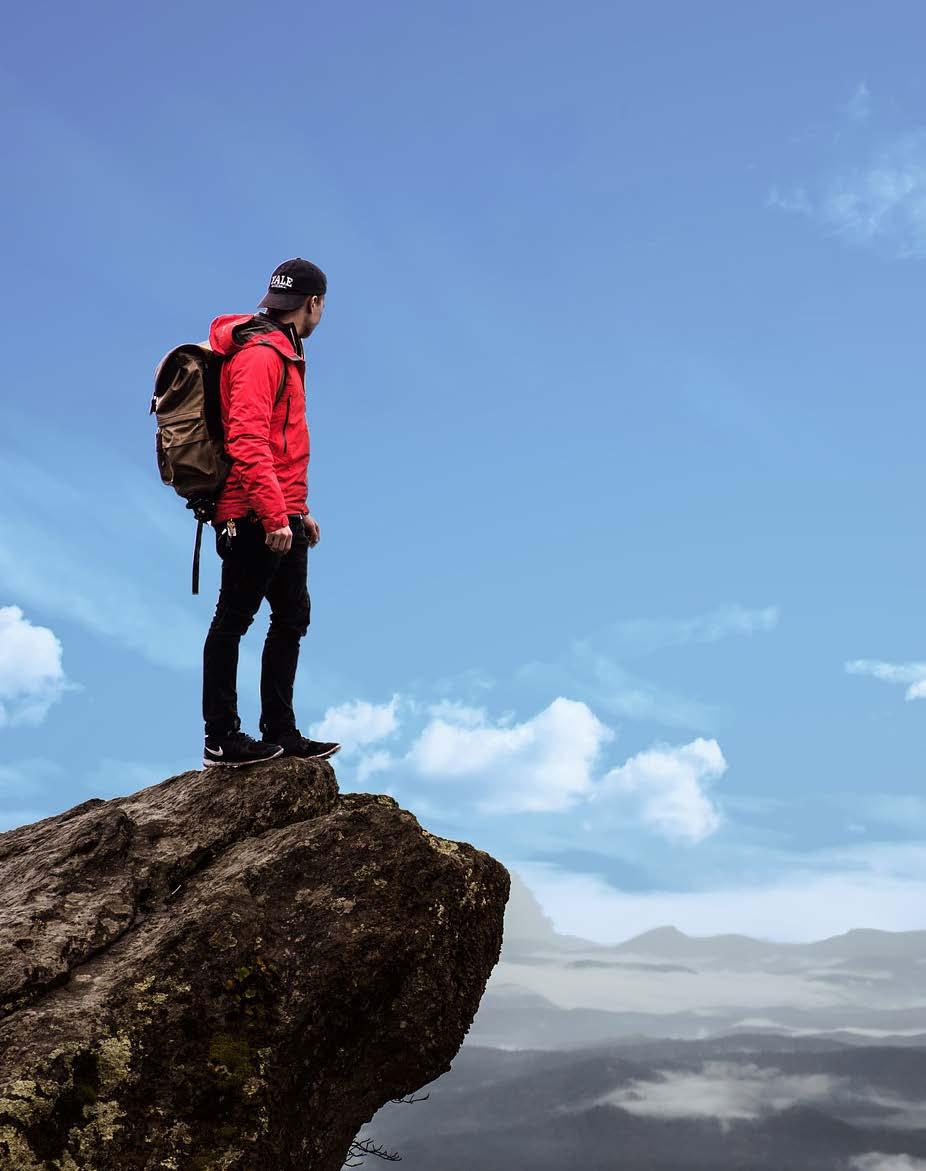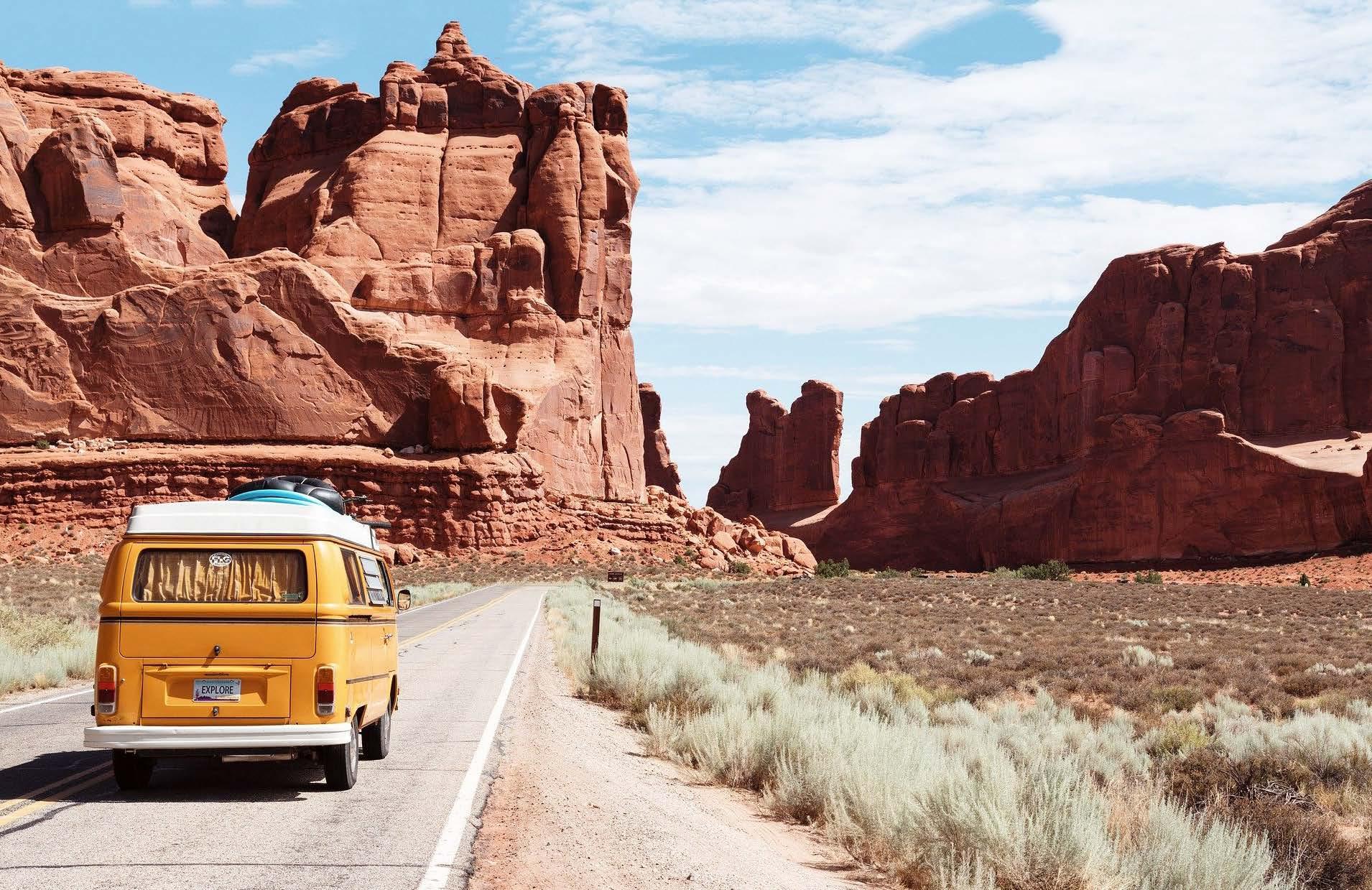
9 minute read
Turismo depois da pandemia
Enquanto o país enfrenta novo confinamento e o turismo permanece em suspenso, o Turismo de Portugal lançou uma campanha de promoção de um turismo mais responsável e sustentável nos principais mercados emissores: Reino Unido, França, Espanha, Alemanha e Brasil. Cada vídeo mostra belas paisagens do país a que se dirige, num apelo à mobilidade e numa convocatória à união, à consciência colectiva e à vontade e responsabilidade destes destinos protegerem aquilo que lhes foi atribuído pela natureza, que é essência da sua identidade e que urge que se conserve para sempre. Em cada vídeo, o protagonista, na voz de uma criança e na língua oficial de cada país apela à responsabilidade de um turista e de um sector mais sustentável, traduzido na assinatura “Tomorrow is today” (amanhã é hoje), força motora que nos fará a todos redescobrir novas formas de viajar”. O conceito deriva das orientações globais da Organização Mundial do Turismo, que apontam para uma recuperação responsável do sector, após a pandemia, para que a actividade turística retome ainda mais forte e mais sustentável.
Recuperação do setor
Advertisement
A recuperação do setor será certamente lenta e dolorosa face ao panorama atual. Os efeitos do Covid-19 no setor atiraram Portugal para níveis de 1993. No ano passado houve uma queda superior a 60% em hóspedes e dormidas, tendo este último indicador regressado a valores que não eram vistos há 27 anos. Os alojamentos turísticos registaram 10,5 milhões de hóspedes e 26 milhões de dormidas no ano passado, o que representa quedas de 61,2% e de 63% face a 2019, respectivamente, causadas pelo efeito da pandemia. Os números relativos a Dezembro mostram, no entanto, uma ligeira melhoria face a Novembro, com 462,5 mil hóspedes e 972,7 mil dormidas. Nesse mês, 50% dos estabelecimentos de alojamento turístico encerraram ou não tiveram hóspedes. Aliado a medidas do Governo com o layoff simplificado, esta tem sido uma das formas de as empresas reagiram à queda da procura.
Em 2019, e perante um sector em crescimento, estavam contabilizados 6.833 estabelecimentos turísticos, mais 20% do que no ano anterior e o dobro do que se verificava em 2013. Os números do ano passado, que começaram a cair em Março (depois de um ciclo de vários anos de crescimento), só não foram piores porque o mercado interno não caiu tanto como o mercado externo. De acordo com os dados do INE, os portugueses foram responsáveis por 13,6 milhões de dormidas (-35,3%) e os mercados externos por 12,3 milhões de dormidas (-74,9%). No caso dos principais mercados externos, o Reino Unido foi o que teve a pior performance, com menos 78,5% dormidas face a 2019, cabendo a Espanha a evolução menos negativa, mas que ainda assim foi de -65,9%.
O que vai mudar
Embora exista uma crença enorme na recuperação do setor pós-pandemia, é inegável que o turismo, tal como o conhecemos, irá sofrer profundas alterações. A plataforma Booking.com realizou um estudo com 20.000 viajantes em 28 países e aponta para seis tendências para o turismo pós-pandemia:
Preços menores
A crise gerada pela pandemia, que agravou a situação económica, aumentou a importância do preço na decisão de compra dos viajantes. Grande parte (84%) passou a prestar mais atenção ao preço na hora de planear uma viagem e 78% estão mais propensos a procurar promoções e descontos.
Transparência
82% dos inquiridos dizem esperar mais clareza nas políticas de cancelamento, processos de reembolso e seguro-viagem, por exemplo. Para 36%, ter reembolso no alojamento é essencial para decidir a próxima viagem; e para 40%, é essencial ter flexibilidade para alterar datas sem multa.
Proximidade
Mesmo que as empresas aéreas reafirmem a segurança de andar de avião neste momento de pandemia, a preferência é por deslocações mais curtas, de preferência de carro. Esse meio de transporte – juntamento com o crescimento de adoção de cães e gatos na quarentena – fez duplicar a procura por alojamentos que aceitem pets. Segundo a pesquisa, metade (55%) quer conhecer um novo destino na região onde mora e 59% pretende ir para um destino de natureza próximo. Num momento de incerteza, 63% também disseram que planeiam viajar para algum local que já conhecem, independentemente da distância.
Medidas sanitárias
Se a limpeza já era um fator importante na escolha de um alojamento, agora 91% dos viajantes dizem que tomarão mais precauções para evitar a contaminação pela covid-19. Assim como a maioria diz que vai evitar certos destinos e espera que as atrações sejam adaptadas para garantir o distanciamento físico, 81% só vai reservar o alojamento se existir clareza nas medidas de higiene e saúde adotadas.

Natureza
A pandemia teve como efeito ressaltar a importância do contato com a natureza e os espaços abertos – especialmente para quem passou meses dentro de um apartamento numa cidade grande. No mundo todo, desde o início da pandemia, aumentaram as recomendações de atividades ao ar livre por hóspedes que passaram por acomodações do Booking.com.
“Bleasure”
Com a adoção do trabalho remoto por um contingente maior de pessoas, deve aumentar a tendência de misturar viagens de trabalho (business) e de lazer (pleasure). Por isso, as plataformas de pesquisa de alojamento devem passar a destacar informações como presença de home office e qualidade da ligação de internet. Segundo a pesquisa, 43% consideram reservar um lugar onde também possam trabalhar e 58% vão estenderas suas viagens de trabalho para aproveitar as folgas.

Tourism after the pandemic
While the country faces new confinement and tourism remains suspended, Turismo de Portugal launched a campaign to promote more responsible and sustainable tourism in the main emission markets: the United Kingdom, France, Spain, Germany and Brazil. Each video shows beautiful landscapes of the country to which it is directed, in an appeal to mobility and in a call for union, collective conscience and the will and responsibility of these destinations to protect what was attributed to them by nature, which is the essence of their identity and which is urgent to be preserved forever. In each video, the protagonist, in the voice of a child and in the official language of each country, calls for the responsibility of a tourist and a more sustainable sector, translated into the signature “Tomorrow is today” (tomorrow is today), the driving force that will make everyone rediscover new ways of traveling ”. The concept derives from the global guidelines of the World Tourism Organization, which point to a responsible recovery of the sector, after the pandemic, so that tourism activity will resume even stronger and more sustainable.
Sector’s recovery
The sector’s recovery will certainly be slow and painful in view of the current scenario. Covid-19’s effects on the sector took Portugal to 1993 levels. Last year there was a drop of over 60% in guests and overnight stays, with the latter indicator returning to values that had not been seen for 27 years. Tourist accommodation recorded 10.5 million guests and 26 million overnight stays last year, which represents a 61.2% and 63% drop compared to 2019, respectively, caused by the pandemic effect. The figures for December show, however, a slight improvement compared to November, with 462.5 thousand guests and 972.7 thousand overnight stays. In that month, 50% of tourist accommodation establishments closed or had no guests. Combined with government measures and simplified layoffs, this has been one of the ways companies have responded to falling demand.
In 2019, and in the face of a growing sector, 6,833 tourist establishments were registered, 20% more than in the previous year and twice as much as in 2013. The figures from last year, which started to fall in March (after a cycle of several years of growth), were not only worse because the domestic market did not fall as much as the foreign market. According to INE data, the Portuguese were responsible for 13.6 million overnight stays (-35.3%) and the foreign markets for 12.3 million overnight stays (-74.9%). In the case of the main foreign markets, the United Kingdom was the one with the worst performance, with 78.5% less overnight stays compared to 2019, with Spain having the least negative evolution, but which was still -65.9%.
What will change
Although there is a huge belief in the recovery of the post-pandemic sector, it is undeniable that tourism, as we know it, will undergo profound changes. The Booking.com platform conducted a study of 20,000 travelers in 28 countries and points to six trends for post-pandemic tourism:
Lower prices
The crisis generated by the pandemic, which aggravated the economic situation, increased the importance of price in the purchase decision of travelers. A large part (84%) started paying more attention to the price when planning a trip and 78% are more likely to look for promotions and discounts.
Transparency
82% of respondents say they expect more clarity in cancellation policies, refund processes and travel insurance, for example. For 36%, having a refund on accommodation is essential to decide the next trip; and for 40%, flexibility to change dates without penalty is essential.
Closeness
Even though the airlines reaffirm the safety of flying in this time of the pandemic, the preference is for shorter trips, preferably by car. This means of transportation - together with the growth of adoption of dogs and cats in quarantine - has doubled the demand for lodgings that accept pets. According to the survey, half (55%) want to get to know a new destination in the region where they live and 59% intend to go to a nearby nature destination. In a moment of uncertainty, 63% also said plan to travel to a place they already know, regardless of the distance.
Health measures
If cleanliness was already an important factor when choosing an accommodation, now 91% of travelers say they they will take more precautions to avoid contamination by covid-19. Just as the majority say they will avoid certain destinations and expect attractions to be adapted to ensure physical distance, 81% will only book their accommodation if there is clarity on the hygiene and health measures adopted.

Nature
The pandemic had the effect of highlighting the importance of contact with nature and open spaces - especially for those who spent months inside an apartment in a large city. Worldwide, since the beginning of the pandemic, recommendations for outdoor activities by guests who have stayed at Booking.com accommodations have increased.
“Bleasure”
With the adoption of remote work by a larger number of people, the tendency to mix business and leisure travel (pleasure) should increase. Therefore, accommodation research platforms should start to highlight information such as the presence of a home office and quality of the internet connection. According to the survey, 43% consider booking a place where they can also work and 58% will extend their work trips to take advantage of their time off.










